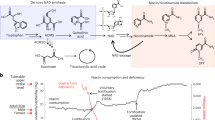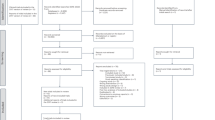Abstract
Objective:
The aim of the present study was to evaluate the association between meat consumption and the prevalence of a first, non-fatal event of an acute coronary syndrome (ACS), in a Greek sample.
Design:
Randomized, case–control study.
Setting:
Tertiary care.
Subjects:
A total of 848 out of 956 patients who had been randomly selected from hospitals with first event of an ACS and 1078 population-based controls, age and sex matched.
Interventions:
Detailed information regarding their medical records, alcohol intake, physical activity and smoking habits was recorded. Nutritional habits were evaluated with a semiquantitative food-frequency questionnaire. Multiple logistic regression analysis estimated the odds ratio of having ACS by level of meat intake, after taking into account several confounders.
Results:
Patients consumed higher quantities of meat compared with controls (6.5±2.9 vs 4.9±2.1 portions per month, P<0.001). Food-specific analysis showed that red meat consumption was strongly associated with 52% increased odds of ACS (95% confidence interval (CI) 1.47–1.58). On the contrary, white meat consumption seems to be associated with only 18% likelihood of having cardiac events (95% CI 1.11–1.26). Participants who consumed >8 portions red meat and >12 portions white meat per month had 4.9 times and 3.7 higher odds of having ACS, respectively (P<0.001), compared with low meat intake (<4 portions and <8 portions per month, respectively).
Conclusions:
Increased red meat consumption showed a strong positive association with cardiac disease risk, whereas white meat consumption showed less prominent results, after controlling for several potential confounding factors.
This is a preview of subscription content, access via your institution
Access options
Subscribe to this journal
Receive 12 print issues and online access
$259.00 per year
only $21.58 per issue
Buy this article
- Purchase on Springer Link
- Instant access to full article PDF
Prices may be subject to local taxes which are calculated during checkout
Similar content being viewed by others
References
Appleby PN, Thorogood M, Mann JI, Key TJ (1998). Low body mass index in non-meat eaters: the possible roles of animal fat, dietary fibre and alcohol. Int J Obes Relat Metab Disord 22, 454–460.
Artaud-Wild SM, Connor SL, Sexton G, Connor WE (1993). Differences in coronary mortality can be explained by differences in cholesterol and saturated fat intakes in 40 countries but not in France and Finland. A paradox. Circulation 88, 2771–2779.
Ascherio A, Willett WC, Rimm EB, Giovannucci EL, Stampfer MJ (1994). Dietary iron intake and risk of coronary disease among men. Circulation 89, 969–974.
Balla G, Jacob HS, Eaton JW, Belcher JD, Vercellotil GM, Hemin A (1991). A possible physiological mediator of low density lipoprotein oxidation and endothelial injury. Arteriosclerosis Thromb 11, 1700–1711.
Baxter AJ, Coyne T, McClintock C (2006). Dietary patterns and metabolic syndrome – a review of epidemiologic evidence. Asia Pac J Clin Nutr 15, 134–142.
Dyer AR, Stamler J, Paul O, Berkson DM, Shekelle RB, Lepper MH et al. (1981). Alcohol, cardiovascular risk factors and mortality: the Chicago experience. Circulation 64, III-20–III-27.
Executive Summary of The Third Report of The National Cholesterol Education Program (NCEP) (2001). Expert Panel on Detection, Evaluation, And Treatment of High Blood Cholesterol In Adults (Adult Treatment Panel III). JAMA 285, 2486–2497.
Gotto AM, LaRosa JC, Hunninghake D, Grundy SM, Wilson PW, Clarkson TB et al. (1990). The cholesterol facts. A summary relating dietary fats, serum cholesterol and coronary heart disease. Circulation 81, 1721–1733.
Gramenzi A, Gentile A, Fasoli M, Negri E, Parazzini F, La Vecchia C (1990). Association between certain foods and risk of acute myocardial infarction in women. BMJ 300, 771–773.
Hu FB, Rimm EB, Stampfer MJ, Ascherio A, Spiegelman D, Willett WC (2000). Prospective study of major dietary patterns and risk of coronary heart disease in men. Am J Clin Nutr 72, 912–921.
Kahn HA, Phillips RL, Snowdon DA, Choi W (1984). Association between reported diet and all-cause mortality. Twenty-one-year follow-up on 27 530 adult Seventh-Day Adventists. Am J Epidemiol 119, 775–787.
Kushi LH, Lenart EB, Willett WC (1995). Health implications of Mediterranean diets in light of contemporary knowledge. 2. Meat, wine, fats, and oils. Am J Clin Nutr 61 (Suppl 6), S1416–S1427.
Leaf A, Weber PC (1988). Cardiovascular effects of n-3 fatty acids. N Engl J Med 318, 549–557.
Li D, Siriamornpun S, Wahlqvist ML, Mann NJ, Sinclair AJ (2005). Lean meat and heart health. Asia Pac J Clin Nutr 14, 113–119.
Malaviarachchi D, Veugelers PJ, Yip AM, MacLean DR (2002). Dietary iron as a risk factor for myocardial infarction. Public health considerations for Nova Scotia. Can J Public Health 93, 267–270.
Martinez-Gonzalez MA, Fernandez-Jarne E, Serrano-Martinez M, Marti A, Martinez JA, Martin-Moreno JM (2002). Mediterranean diet and reduction in the risk of a first acute myocardial infarction: an operational healthy dietary score. Eur J Nutr 41, 153–160.
Menotti A, Kromhout D, Blackburn H, Fidanza F, Buzina R, Nissinen A, for the Seven Countries Study Research Group (1999). Food intake patterns and 25-year mortality from coronary heart disease: Cross-cultural correlations in the Seven Countries Study. Eur J Epidemiol 15, 507–515.
Myocardial infarction redefined (2000). A consensus document of The Joint European Society of Cardiology/American College of Cardiology Committee for the redefinition of myocardial infarction. Eur Heart J 21, 1502–1513.
Panagiotakos DB, Pitsavos C, Chrysohoou C, Stefanadis C, Toutouzas PK (2002). Risk stratification of coronary heart disease, in Greece: final results from CARDIO2000 epidemiological study. Prev Med 35, 548–556.
Pate RR, Pratt M, Blair SN, Haskell WL, Macera CA, Bouchard C et al. (1995). Physical activity and public health. A recommendation from the Centers for Disease Control and Prevention and the American College of Sports Medicine. JAMA 273, 402–407.
Reddy KS, Katan MB (2004). Diet, nutrition and the prevention of hypertension and cardiovascular diseases. Pub Health Nutr 7 (1A), 167–186.
Sacks FM, Donner A, Castelli WP, Gronemeyer J, Pletka P, Margolius HS et al. (1981). Effect of ingestion of meat on plasma cholesterol of vegetarians. JAMA 246, 640–644.
Sacks FM, Svetkey LP, Vollmer WM, Appel LJ, Bray GA, Harsha D et al. (2001). Effects on blood pressure of reduced dietary sodium and the Dietary Approaches to Stop Hypertension (DASH) diet. DASH-Sodium Collaborative Research Group. N Engl J Med 344, 3–10.
Selhub J (2006). The many facets of hyperhomocysteinemia: studies from the Framingham cohorts. J Nutr 136 (6 Suppl), 1726S–1730S.
Snowdon DA, Phillips RL, Fraser GE (1984). Meat consumption and fatal ischaemic heart disease. Prev Med 13, 490–500.
Song Y, Manson JE, Buring JE, Liu S (2004). A prospective study of red meat consumption and type 2 diabetes in middle-aged and elderly women: the women's health study. Diabetes Care 27, 2108–2115.
Supreme Scientific Health Council, Ministry of Health and Welfare of Greece (1999). Dietary guidelines for adults in Greece. Arch Hellenic Med 16, 516–524.
Trichopoulou A, Kouris-Blazos A, Wahlqvist M, Gnardellis C, Lagiou P, Polychronopoulos E et al. (1995). Diet and overall survival in elderly people. BMJ 311, 1457–1460.
Ulbricht T, Southgate D (1991). Coronary heart disease: seven dietary factors. Lancet 338, 985–992.
van Dam RM, Willett WC, Rimm EB, Stampfer MJ, Hu FB (2002). Dietary fat and meat intake in relation to risk of type 2 diabetes in men. Diabetes Care 25, 417–424.
Verhoef P, Stampfer MJ, Buring JE, Gaziano JM, Allen RH, Stabler SP et al. (1996). Homocysteine metabolism and risk of myocardial infarction: relation with vitamins B6 and B12 and folate. Am J Epidemiol 143, 845–859.
Zyriax BC, Boeing H, Windler E (2005). Nutrition is a powerful independent risk factor for coronary heart disease in women-The CORA study: a population-based case–control study. Eur J Clin Nutr 59, 1201–1207.
Acknowledgements
This study is supported by research grants from the Hellenic Heart Foundation (11/1999-2002). We thank the physicians and the specialists that coordinated the data collection of this study: Ê Tzioumis (Athens, Crete, Pelloponisos), J Skoumas (Athens), Í Papaioannou (Athens, Thessalia), P Stravopodis (Ionian Islands), L Karra (Aegean Islands), D Antoniades (Macedonia), G Rembelos (Aegean Islands), D Markou (Athens), A Moraiti (Athens), D Evagelou (Crete), S Vellas (Attica, Hpeirous), G Skoumbourdis (Sterea Hellas), B Meidanis (Macedonia, Sterea Hellas, Thessalia), S Loggos (Attica), É Elefsiniotis (Athens), N Marinakis (Aegean Islands), G Koutsimbanis (Thrace) and S Zombolos (Peloponnese).
Author information
Authors and Affiliations
Corresponding author
Additional information
Guarantor: DB Panagiotakos.
Contributors: MDK wrote the paper; DBP principal investigator of the study, paper writing; CP critically reviewed the paper; CC investigator of the study; CF reviewed the paper.
Rights and permissions
About this article
Cite this article
Kontogianni, M., Panagiotakos, D., Pitsavos, C. et al. Relationship between meat intake and the development of acute coronary syndromes: the CARDIO2000 case–control study. Eur J Clin Nutr 62, 171–177 (2008). https://doi.org/10.1038/sj.ejcn.1602713
Received:
Revised:
Accepted:
Published:
Issue Date:
DOI: https://doi.org/10.1038/sj.ejcn.1602713
Keywords
This article is cited by
-
Meat intake and incidence of cardiovascular disease in Japanese patients with type 2 diabetes: analysis of the Japan Diabetes Complications Study (JDCS)
European Journal of Nutrition (2019)
-
Tackling the chronic disease burden: are there co-benefits from climate policy measures?
The European Journal of Health Economics (2018)
-
Unprocessed red meat and processed meat consumption and risk of stroke in the Spanish cohort of the European Prospective Investigation into Cancer and Nutrition (EPIC)
European Journal of Clinical Nutrition (2016)
-
Phenotypic and genotypic background underlying variations in fatty acid composition and sensory parameters in European bovine breeds
Journal of Animal Science and Biotechnology (2014)
-
Meat consumption and diet quality and mortality in NHANES III
European Journal of Clinical Nutrition (2013)



